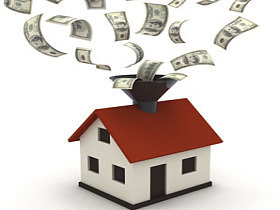What's Hot: Did January Mark The Bottom For The DC-Area Housing Market? | The Roller Coaster Development Scene In Tenleytown and AU Park
 The 5 Things To Know About DC Property Taxes
The 5 Things To Know About DC Property Taxes
✉️ Want to forward this article? Click here.

With all the news surrounding property taxes over the past few weeks, UrbanTurf wanted to put together a quick primer on the topic. As the widely-read Washington Post report makes clear, failing to pay your property taxes can result in consequences as dire as losing your home. While Mayor Gray has initiated a few programs to assist those who are delinquent, we wanted to outline a few things that will help navigate the process.
- Usable and occupied residential properties in DC are taxed at a rate of $0.85 per $100 of the assessed value (commercial, vacant and blighted properties are taxed at different rates.) An assessor determines the current market value of homes in the District, and property taxes may rise and fall based on the determined valuation.
- These days, if you take out a mortgage to buy a home, your property taxes are usually baked into the monthly payments. In these cases, your lender will divert a portion of your monthly payment to cover your tax bill. It is worthwhile, nonetheless, to check and make sure that if your monthly mortgage payments include property tax payments, your lender is indeed paying off your taxes.
While your principal will be constant throughout the duration of a loan, your tax burden may vary slightly, depending on the assessed value of your home. So, some years you may have to pay more, others less. - If you bought your home in cash, did not need to take out a loan or have paid off your home, you will receive a separate property tax bill from the city. In DC, you must pay property taxes twice a year, on March 31st and September 15th.
You can pay your real property tax bill online or by mail. Instructions on how to do that can be found here. - DC's Homestead Exemption can save owner-occupants a considerable amount of money. The exemption will deduct $69,100 from your property's assessed value when calculating the amount of property tax you must pay. To be eligible, the property must be your primary residence.
There is another facet of the policy. For homeowners over the age of 64, the Homestead Exemption is even more valuable: senior citizens with an adjusted gross household income of less than $100,000 can have their property taxes reduced by 50 percent. This is particularly pertinent to those living in rapidly changing areas, where the property values and corresponding taxes may be significantly higher than they were when the older folks moved in.
Interested parties must apply for the exemption through the District's Office of Tax and Revenue. You can follow links to the application here. If at some point the owner becomes ineligible, they must cancel the exemption or face monetary penalties. - If a homeowner fails to pay their property taxes, penalties can quickly pile up. The penalty is 10 percent of your tax and the interest is 1.5 percent of the tax for each full or partial month your payment is late. Every year, the city sells off a number of their tax debts to parties who can then charge even more in fees and interest and eventually foreclose on the home. As the Post story outlined, when this happens, owners sometimes find themselves losing their homes to very small original debts.
Mayor Gray's newest initiative is aimed at helping those who have fallen behind on their debts to navigate the system and set up payment programs. A new District employee, the Real Property Tax Ombudsman, will be the person to call when you need assistance with your property taxes.
Similar Posts:
* First-Timer Primer: What To Do After Buying an Illegally Rented Property * First-Timer Primer: What Is the Right of First Refusal? * First-Timer Primer: What is a Rent Back? * First-Timer Primer: Is This Condo Building Financially Healthy? * First-Time Primer: Obtaining a Basic Business License For Your Rental * First-Timer Primer: A Condo Fee Tutorial * First-Timer Primer: Interest Rates and Mortgage Points * First Timer Primer: The Splitting the Rent Formula * First Timer Primer: Tax Relief for DC Homeowners * First Timer Primer: How Do Mortgage Payments Work? * First Timer Primer: How Much Cash Do You Need to Buy a House? * First-Timer Primer: The Mortgage Pre-Approval Process * How a $100 Mistake Can Sink Your Credit Score
See other articles related to: dc property taxes, dclofts, first-timer primer, homestead deduction, property taxes
This article originally published at https://dc.urbanturf.com/articles/blog/the_top_five_things_to_know_about_property_taxes/7563.
Most Popular... This Week • Last 30 Days • Ever

As mortgage rates have more than doubled from their historic lows over the last coupl... read »

The small handful of projects in the pipeline are either moving full steam ahead, get... read »

The longtime political strategist and pollster who has advised everyone from Presiden... read »

Lincoln-Westmoreland Housing is moving forward with plans to replace an aging Shaw af... read »

A report out today finds early signs that the spring could be a busy market.... read »
DC Real Estate Guides
Short guides to navigating the DC-area real estate market
We've collected all our helpful guides for buying, selling and renting in and around Washington, DC in one place. Start browsing below!
First-Timer Primers
Intro guides for first-time home buyers
Unique Spaces
Awesome and unusual real estate from across the DC Metro













